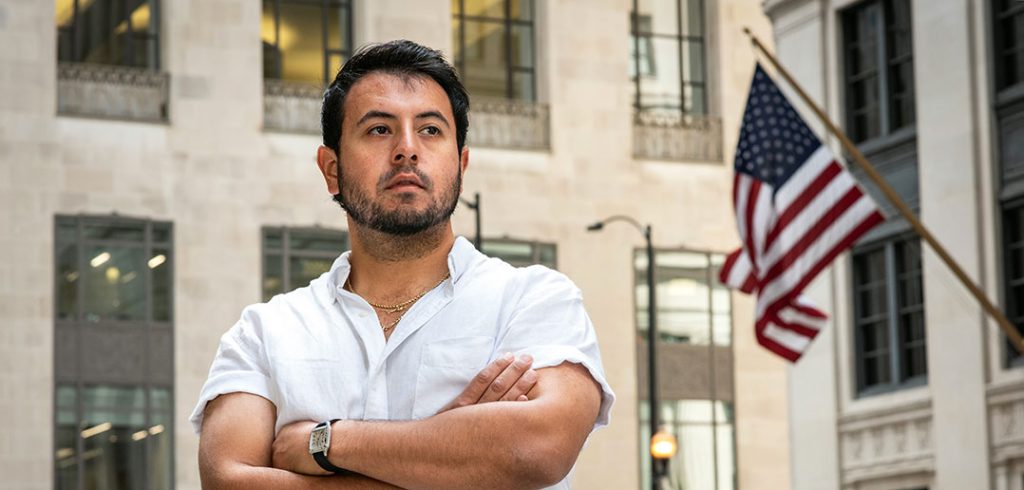An investor provides capital for overlooked communities
From the South Side of Chicago to New York City investment banks, Capitol Hill, and Mexico City startups, Israel Muñoz has been all over the map working to change the distribution of capital.
“Even within venture capital, less than two or three percent goes to women, less than two percent goes to people of color,” he says, “and capital is the tool for building the future.”
As a first-generation Mexican American in Chicago, Muñoz became involved in grassroots organizing and activism surrounding public education when he noticed his high school struggling to provide viable resources to students. He earned a scholarship to attend Fordham College at Lincoln Center, where he intended to major in political science but quickly switched to economics—a subject that was “an abstraction” to him until he took an introductory macroeconomics course taught by Michael Buckley, Ph.D.
Attending Fordham at the time of the Occupy Wall Street movement, Muñoz became interested in understanding wealth and income inequality and how economic forces shape the world at large. That curiosity was nourished by his time in the Matteo Ricci seminar, an honors course for students interested in connecting research with community engagement. For Muñoz, the experience deepened his political consciousness and planted the seeds for him to apply for a Fulbright scholarship.
“We spoke about economic inequality and we read Thomas Piketty’s Capital in the Twenty-First Century. The thoughts about the one percent and power and wealth were really swimming in my head. I think Matteo Ricci just made me a more informed citizen,” says Muñoz, who also earned a Campion fellowship from Fordham’s Office of Prestigious Fellowships that took him to Chile to research education inequality.
Increasingly interested in finance, he interned at UBS, JPMorgan Chase, and in the offices of U.S. Senator Dick Durbin before a Fulbright scholarship took him to Mexico City, where he gained exposure to the Latin American tech ecosystem.
He credits Anna Beskin, Ph.D., then an advisor in Fordham’s Office of Prestigious Fellowships, for her constructive help with his Fulbright essay. “If Anna wasn’t there, I probably wouldn’t have gotten [the opportunity] and become a venture capital investor,” he says.
Since returning from his Fulbright experience Mexico, Muñoz has worked as an investment analyst for the Illinois state treasurer and as an associate at Acrew Capital, a San Francisco-based venture capital fund. He also helped start Angeles Investors, a Hispanic- and Latinx-focused angel investor group.
“I think it’s really important that capital be distributed in a different way,” he says, “so that more of us have a shot at creating the future.”

